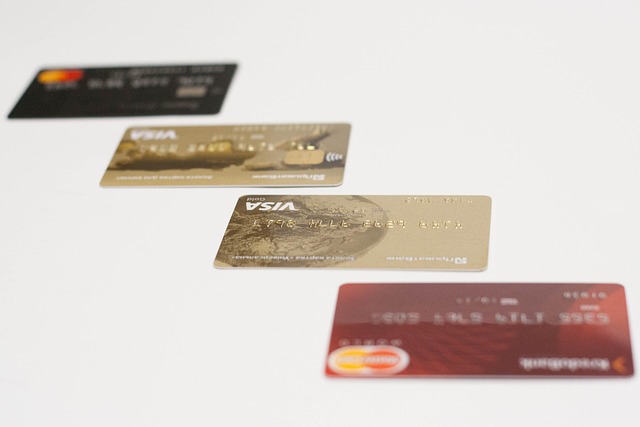Essential Skills and Career Opportunities in Modern Programs
A marketing degree opens doors to diverse career opportunities in India's rapidly growing digital economy. Students learn fundamental marketing principles, consumer behavior analysis, brand management, and digital marketing strategies. Modern marketing programs combine traditional marketing concepts with cutting-edge digital tools, preparing graduates for roles in advertising agencies, corporate marketing departments, startups, and consulting firms across various industries.

Explore Modern Marketing Programs
Modern marketing programs in India have evolved significantly to meet the demands of today’s digital-first business environment. Universities and institutions now offer comprehensive curricula that blend traditional marketing fundamentals with contemporary digital strategies. These programs typically span three to four years for undergraduate degrees and one to two years for postgraduate qualifications.
Students can choose from various specializations including digital marketing, brand management, consumer research, international marketing, and marketing analytics. Leading institutions like Indian Institutes of Management, Delhi School of Economics, and private universities such as Symbiosis and NMIMS offer well-structured marketing programs that combine theoretical knowledge with practical applications.
The curriculum generally includes core subjects such as marketing research, consumer behavior, advertising and promotion, sales management, and strategic marketing. Additionally, modern programs emphasize data analytics, social media marketing, content creation, and e-commerce strategies to prepare students for the digital marketplace.
Learn Key Marketing Strategies
Marketing strategy forms the backbone of any successful business operation. Students pursuing marketing degrees learn to develop comprehensive marketing plans that align with business objectives and target audience needs. Key strategic concepts include market segmentation, positioning, competitive analysis, and the traditional marketing mix of product, price, place, and promotion.
Contemporary marketing education also covers relationship marketing, which focuses on building long-term customer relationships rather than one-time transactions. Students learn to analyze market trends, conduct consumer research, and interpret data to make informed marketing decisions. Case study analysis from successful Indian and international brands helps students understand real-world application of marketing theories.
Strategic planning courses teach students to assess market opportunities, identify target segments, and develop value propositions that resonate with specific customer groups. These skills are essential for marketing professionals working in diverse sectors from FMCG to technology and services.
Study Digital Marketing Concepts
Digital marketing has become an integral component of modern marketing education. Students learn to navigate various digital platforms including search engines, social media networks, email marketing systems, and mobile applications. Key digital concepts include search engine optimization (SEO), pay-per-click advertising (PPC), content marketing, and social media strategy development.
Analytics and data interpretation form crucial aspects of digital marketing education. Students learn to use tools like Google Analytics, social media insights, and customer relationship management (CRM) systems to track campaign performance and measure return on investment. Understanding customer journey mapping and conversion optimization helps students create more effective digital marketing campaigns.
Emerging technologies such as artificial intelligence, machine learning, and automation are increasingly integrated into digital marketing curricula. Students explore how these technologies can enhance personalization, improve targeting accuracy, and streamline marketing processes.
| Institution Type | Program Duration | Cost Estimation |
|---|---|---|
| Government Universities | 3-4 years (UG) | ₹50,000 - ₹2,00,000 |
| Private Universities | 3-4 years (UG) | ₹3,00,000 - ₹8,00,000 |
| IIMs and Premier Institutes | 2 years (PG) | ₹15,00,000 - ₹25,00,000 |
| Online Programs | 1-3 years | ₹50,000 - ₹3,00,000 |
Prices, rates, or cost estimates mentioned in this article are based on the latest available information but may change over time. Independent research is advised before making financial decisions.
Career prospects for marketing degree holders in India are diverse and growing. Graduates can pursue roles in advertising agencies, corporate marketing departments, digital marketing firms, market research companies, and consulting organizations. Popular career paths include brand manager, digital marketing specialist, market research analyst, advertising executive, and sales manager.
The rise of startups and e-commerce platforms has created numerous opportunities for marketing professionals who understand both traditional and digital marketing approaches. Many graduates also choose to become freelance marketing consultants or start their own marketing agencies, leveraging the entrepreneurial skills developed during their studies.
A marketing degree provides a solid foundation for understanding consumer behavior, market dynamics, and business strategy. The combination of analytical thinking, creative problem-solving, and communication skills developed through marketing education makes graduates valuable assets in virtually any industry. As businesses continue to prioritize customer acquisition and retention, the demand for skilled marketing professionals remains strong across India’s evolving economic landscape.




